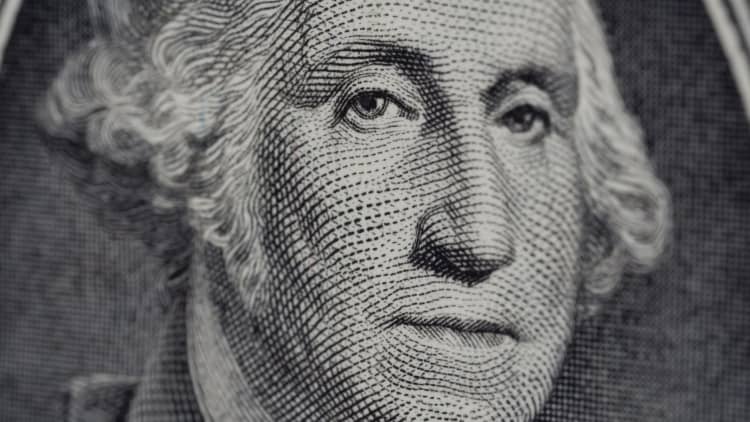The dollar fell on Monday after posting its largest weekly gain in a month last Friday, as investors pared back their long bets on the greenback and rebalanced their positions ahead of Federal Reserve Chairman Jerome Powell's first congressional testimony.
Investors are awaiting Powell's semiannual testimony on the economy and monetary policy before the U.S. Senate Banking Committee on Tuesday. Powell is likely to reiterate the Fed's gradual monetary policy tightening, but any suggestion of caution on trade could unravel the market's appetite for risk again, analysts said. "The market is just paring back its long dollar positioning, looking to go neutral ahead of Powell's testimony," said Mazen Issa, senior FX strategist at TD Securities in New York.
The dollar has benefited from expectations of further interest rate increases this year as well as a growing belief that the United States is better placed than it major rivals to withstand a potential disruption in global trade.
"While a trade war is unlikely to produce any winners, the U.S. economic and monetary policy cycles are likely less sensitive to risks around trade than the euro zone, UK, and Asian economies," said Omer Esiner, chief market analyst at Commonwealth Foreign Exchange in Washington.
Outstanding U.S. dollar bets are at their highest levels since March 2017, with the latest weekly data showing yet another increase in positions. Speculators were net long dollars for a fourth consecutive week, after being net short for 48 straight weeks.
The dollar fell 0.25 percent against a basket of six major currencies to 94.51, sliding for a second straight session. The dollar briefly pared losses after data showed U.S. retail sales rose 0.5 percent in June, as households boosted purchases of automobiles and a range of other goods.
The uptrend on the dollar remained intact. Since hitting a more than three-year low against a basket of six major currencies in February, the dollar has gained nearly 8 percent. The dollar's growing inverse correlation with global risk appetite has also fueled a near 6 percent rise in the greenback over the last three months.
Monday's bounce in European stocks led by strong results from Deutsche Bank, snapped that trend. A rebound in global risk appetite on Monday, despite some tepid Chinese economic data, has dampened fears about an escalating trade conflict between Beijing and Washington and boosted higher-yielding currencies. The euro rose 0.23 percent against the dollar to $1.1712 after weakening half a percent last week.


